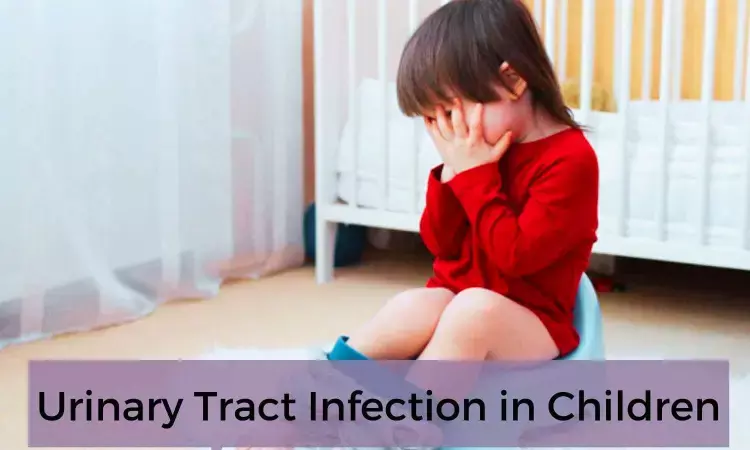- Home
- Medical news & Guidelines
- Anesthesiology
- Cardiology and CTVS
- Critical Care
- Dentistry
- Dermatology
- Diabetes and Endocrinology
- ENT
- Gastroenterology
- Medicine
- Nephrology
- Neurology
- Obstretics-Gynaecology
- Oncology
- Ophthalmology
- Orthopaedics
- Pediatrics-Neonatology
- Psychiatry
- Pulmonology
- Radiology
- Surgery
- Urology
- Laboratory Medicine
- Diet
- Nursing
- Paramedical
- Physiotherapy
- Health news
- Fact Check
- Bone Health Fact Check
- Brain Health Fact Check
- Cancer Related Fact Check
- Child Care Fact Check
- Dental and oral health fact check
- Diabetes and metabolic health fact check
- Diet and Nutrition Fact Check
- Eye and ENT Care Fact Check
- Fitness fact check
- Gut health fact check
- Heart health fact check
- Kidney health fact check
- Medical education fact check
- Men's health fact check
- Respiratory fact check
- Skin and hair care fact check
- Vaccine and Immunization fact check
- Women's health fact check
- AYUSH
- State News
- Andaman and Nicobar Islands
- Andhra Pradesh
- Arunachal Pradesh
- Assam
- Bihar
- Chandigarh
- Chattisgarh
- Dadra and Nagar Haveli
- Daman and Diu
- Delhi
- Goa
- Gujarat
- Haryana
- Himachal Pradesh
- Jammu & Kashmir
- Jharkhand
- Karnataka
- Kerala
- Ladakh
- Lakshadweep
- Madhya Pradesh
- Maharashtra
- Manipur
- Meghalaya
- Mizoram
- Nagaland
- Odisha
- Puducherry
- Punjab
- Rajasthan
- Sikkim
- Tamil Nadu
- Telangana
- Tripura
- Uttar Pradesh
- Uttrakhand
- West Bengal
- Medical Education
- Industry
Short-course therapy reasonable option for UTI in children despite more treatment failure

USA: The SCOUT trial has revealed that short-course therapy is less effective than standard-course therapy for children with urinary tract infections (UTIs).
The randomized clinical trial of 664 children showed that children assigned to standard-course therapy had lower treatment failure rates than children assigned to short-course therapy. However, the rate was low in both treatment groups.
The researchers suggest that short-course therapy could be considered a reasonable treatment option given its low failure rate.
"Stopping antibiotics when symptoms improved after an initial 5-day course led to a 4.1% rate of persistent symptomatic urinary tract infection by follow-up at day 11-14 compared with 0.6% when children had the full 10-day course," Theoklis Zaoutis, Children's Hospital of Philadelphia, Philadelphia, and colleagues reported in their study published in JAMA Pediatrics.
Urinary tract infections are the most common bacterial infections worldwide and are a frequent indication for antibiotic therapy in adults and children. When involving the upper urinary tract, UTIs can result in short-term and long-term morbidity, including acute kidney injury, hypertension, kidney scarring, and sepsis. The American Academy of Pediatrics (AAP) recommends treating febrile UTIs (i.e., pyelonephritis) with a duration of 7 to 14 days of antibiotic therapy to alleviate illness during the infection's acute phase and to reduce the potential for long-term sequelae. However, limited robust clinical trials have defined the optimal duration of therapy for UTIs in children.
Considering the lack of pediatric-specific comparative data to guide the duration of therapy recommendations in kids with UTI, Dr Zaoutis and the team aimed to compare the efficacy of standard-course and short-course therapy for children with UTI.
The SCOUT randomized clinical noninferiority was conducted at outpatient clinics and emergency departments at two children's hospitals from 2012 to 2019. Data analysis was done from 2020 to 2023. Participants were children with UTI, aged two months to 10 years, who exhibited improvement after five days of antimicrobials. They were randomized to another five days of antimicrobials (standard-course therapy; n=328) or five days of placebo (short-course therapy; n=336).
Treatment failure (primary outcome) was a symptomatic UTI at or before the first follow-up visit (days 11 to 14). Secondary outcomes were UTI after the first follow-up visit, positive urine culture, asymptomatic bacteriuria, and gastrointestinal colonization with resistant organisms.
The study revealed the following findings:
- Analysis for the primary outcome included 664 randomized children (639 female [96%]; median age, four years).
- Among children evaluated for the primary outcome, 0.6% of children assigned to the standard course and 4.2% allocated to the short course had a treatment failure (an absolute difference of 3.6%).
- Children receiving short-course therapy were likelier to have asymptomatic bacteriuria or a positive urine culture at or by the first follow-up visit.
- There were no differences between groups in rates of UTI after the first follow-up visit, incidence of adverse events, or incidence of gastrointestinal colonization with resistant organisms.
"Our findings showed that children assigned to standard course therapy had lower rates of lower rates of treatment failure versus children assigned to short-course therapy," the researchers wrote. "However, the low failure rate of short-course therapy indicates that it could be considered a reasonable option for children exhibiting clinical improvement after five days of antimicrobial treatment."
Reference:
Zaoutis T, Shaikh N, Fisher BT, et al. Short-Course Therapy for Urinary Tract Infections in Children: The SCOUT Randomized Clinical Trial. JAMA Pediatr. Published online June 26, 2023. doi:10.1001/jamapediatrics.2023.1979
Dr Kamal Kant Kohli-MBBS, DTCD- a chest specialist with more than 30 years of practice and a flair for writing clinical articles, Dr Kamal Kant Kohli joined Medical Dialogues as a Chief Editor of Medical News. Besides writing articles, as an editor, he proofreads and verifies all the medical content published on Medical Dialogues including those coming from journals, studies,medical conferences,guidelines etc. Email: drkohli@medicaldialogues.in. Contact no. 011-43720751


